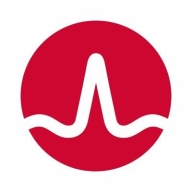

Both DX Spectrum and Wireshark are prominent tools in network monitoring and analysis. Wireshark appears to excel in feature-specific areas, whereas DX Spectrum has a competitive edge in user satisfaction over cost and customer service.
Features: DX Spectrum offers advanced network monitoring capabilities, intuitive design, and user-friendly navigation. Wireshark provides detailed packet analysis, comprehensive protocol support, and in-depth diagnostic tools.
Room for Improvement: DX Spectrum could enhance integration options, improve scalability, and provide more advanced features. Wireshark needs to improve performance speed, simplify the learning curve, and better user interface design.
Ease of Deployment and Customer Service: DX Spectrum has a smooth deployment process and robust customer service with quick, efficient support. Wireshark’s deployment is straightforward but complex for new users. Its support is helpful but not as responsive as DX Spectrum’s.
Pricing and ROI: DX Spectrum offers competitive pricing with strong ROI and cost-effectiveness. Wireshark is free, which is a substantial advantage, but DX Spectrum’s greater ease of use and enhanced support justify its cost for long-term returns.
| Product | Market Share (%) |
|---|---|
| Wireshark | 12.3% |
| DX Spectrum | 4.8% |
| Other | 82.9% |


| Company Size | Count |
|---|---|
| Small Business | 25 |
| Midsize Enterprise | 19 |
| Large Enterprise | 90 |
| Company Size | Count |
|---|---|
| Small Business | 31 |
| Midsize Enterprise | 11 |
| Large Enterprise | 27 |
DX Spectrum is a complete event and fault management system for network operations teams. The tool provides powerful capabilities for managing your dynamic, complex IT infrastructure, which includes physical, virtual, and cloud environments.The technology allows you to manage and optimize the infrastructure and the professional services that operate on top of it. DX Spectrum is a unified platform that helps your company enhance network service levels while lowering monitoring costs.
DX Spectrum has intelligent event correlation and root-cause analysis capabilities. It can pinpoint the precise components that are causing issues with availability and network settings. Reports and dashboards can be customized with role-based views. Change management solutions can also be used by teams to govern, track, and remediate changes across network devices.
DX Spectrum can identify multi-technology and multi-vendor stacks, as well as new software-defined networks (SDNs). It supports Multicast, MPLS, VPN, and VRF, among other routing protocols and technologies.
DX Spectrum Features
DX Spectrum has many valuable key features. Some of the most useful ones include:
DX Spectrum Benefits
There are many benefits to implementing DX Spectrum. Some of the biggest advantages the solution offers include:
Reviews from Real Users
DX Spectrum stands out among its competitors for a number of reasons. Two major ones are its robust root cause analysis and its event correlation tool. PeerSpot users take note of the advantages of these features in their reviews:
Umair A., Enterprise Solutions & Services Head at Duroob Technologies, writes of the product, “It covers networks very well. It has all the capabilities that you're looking for when it comes to monitoring. Spectrum is great for root cause analysis. It has excellent correlation event management. Spectrum's stability and scalability are also amazing. If you have a CA Service Desk, then it can be integrated so that if you have open tickets they can be closed automatically.”
Itarchit, an IT Architect at a comms service provider, notes, “The most valuable feature is the event correlation mechanism. I also like the product's multi-customer approach.” He adds, “We haven't seen a better product. Overall, I am happy with this solution. Based on the current market, I would rate DX Spectrum a nine out of ten.”
We monitor all Network Troubleshooting reviews to prevent fraudulent reviews and keep review quality high. We do not post reviews by company employees or direct competitors. We validate each review for authenticity via cross-reference with LinkedIn, and personal follow-up with the reviewer when necessary.